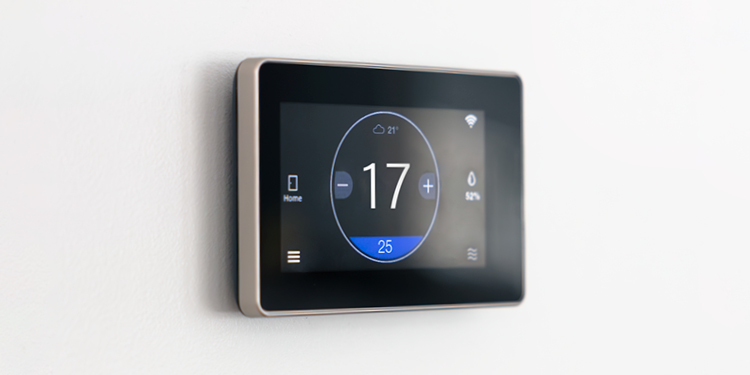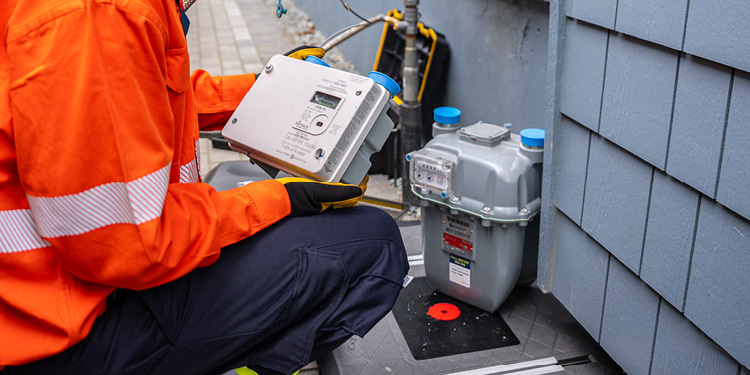Tank or tankless? How to find your perfect match in a water heater
November 18, 2021
Updated: September 1, 2023
If your current water heater is a standard storage tank model and it’s 10+ years old, it could fail at any time—and there’s no fixing a leaky storage tank water heater. You don’t want to make a rash decision on this major purchase, so we recommend being proactive and doing some research ASAP. To help you decide which water heater is the best for your household needs, we’re giving you the lowdown on all the options available.

The perfect water heater for your needs
When choosing the right water heater for your home, consider the following:
- Efficiency and energy costs: a standard gas or electric storage tank is the cheapest type of water heater to purchase and install, but your ongoing water heating costs will be higher than with a high-efficiency model. Alternatively, you could spend more money upfront on a high-efficiency water heater and have lower water heating costs.
- Electric versus gas: do you want your new water heater to run on the same energy source as your current one does?
- Emissions: newer gas water heaters have come a long way in terms of efficiency (meaning lower overall emissions), and if you’re connected to the gas system, you can sign up for lower carbon1 Renewable Natural Gas2 to reduce your emissions further.
- The number of people and bathrooms in the home: this will help determine what size and heating capacity you need in a water heater.
- Space: if space is a concern, a tankless model might be a good option.
- Venting: if the existing water heater runs on propane or natural gas it will be vented either through the chimney or a vertical vent, but some high-efficiency gas models may need to be vented through a side wall which can add to installation costs.
- Gas piping: if you’re considering a tankless model and you’re in an older home, you may need to have your gas contractor inspect your existing gas piping from the meter into your home. A high demand for gas for short periods may require piping with more capacity (although tankless models generally use less energy than storage tanks).
Water heater types
The table below provides a snapshot of the options available. A licensed gas or electrical contractor can also help you choose the perfect match for your home and lifestyle. Note: the water heating costs stated below are average costs based on a four-person home.
Gas water heaters
| Type | Efficiency | Average lifespan | Annual water heating costs3 | Pros | Cons |
|---|---|---|---|---|---|
Standard storage tank Note: water heaters manufactured after January 1, 2018 require a minimum Uniform Energy factor (UEF) of 0.67 | OK 0.51 to 0.66 UEF | 10-12 years | $312 to $404 |
|
|
ENERGY STAR® storage tank | Good 0.67 to 0.82 UEF | 10-13 years | $251 to $307 |
|
|
Condensing storage tank | Even better 0.8 to 0.89 UEF | 12-15 years | $212 to $289 |
|
|
Non-condensing natural gas tankless | Even better 0.82 to 0.88 UEF | 20 years | $234 to $240 |
|
|
Condensing natural gas tankless | Excellent 0.89 to 0.97 UEF | 20 years | $212 to $231 | In addition to non-condensing tankless pros:
| In addition to non-condensing tankless cons:
|
Combination heating and hot water system | Excellent 0.92 to 0.97 UEF | 18-20 years | $212 to $224 (for water heating costs only) |
|
|
Electric water heaters
| Type | Efficiency | Average lifespan | Annual water heating costs3 | Pros | Cons | Rebate4 |
|---|---|---|---|---|---|---|
Standard storage tank | Good 0.86 to 0.9 EF | 10-12 years | $568 to $614 |
|
| Not available |
Heat pump water heater | Ultimate 2.3 to 3 UEF | 13 years | $176 to $230 |
|
|
What’s the UEF?
Water heater efficiency is measured by an Energy Factor (EF) or Uniform Energy Factor (UEF) ratio. The number means how much energy it can turn into useable heat. The higher the number the better. Most standard gas storage tank water heaters currently in homes today have a UEF of about 0.50 to 0.60. New ENERGY STAR storage tank models have a minimum UEF of 0.67. In comparison, condensing tankless models offer UEFs as high as 0.97.
1When compared to the lifecycle carbon intensity of conventional natural gas. The burner tip emission factor of FortisBC’s current Renewable Natural Gas (also called RNG or biomethane) portfolio is 0.27 grams of carbon dioxide equivalent per megajoule of energy (gCO2e/MJ). FortisBC’s current RNG portfolio lifecycle emissions for stationary combustion are -22 gCO2e/MJ. This is below B.C.’s lifecycle carbon intensity threshold of 30.8 gCO2e/MJ as set out in the 2024 Greenhouse Gas Reduction Regulation amendments.
2Renewable Natural Gas (also called RNG or biomethane) is produced in a different manner than conventional natural gas. It is derived from biogas, which is produced from decomposing organic waste from landfills, agricultural waste and wastewater from treatment facilities. The biogas is captured and cleaned to create RNG. When RNG is added to North America’s natural gas system, it mixes with conventional natural gas. This means we’re unable to direct RNG to a specific customer. But the more RNG is added to the gas system, the less conventional natural gas is needed, thereby reducing the use of fossil fuels and overall greenhouse gas emissions.
3Approximate annual water heating costs for a four occupant home based on October 2021 natural gas rate of $12.57 per gigajoule and a blended electricity rate of 12.85¢ per kWh, not including tax. Your costs may vary. Source: FortisBC home energy calculator.
4Conditions apply. Rebates available until December 31, 2023. Rebate amounts listed are per appliance unless otherwise indicated. Terms and conditions are available on the respective program pages. FortisBC may modify or cancel programs at any time without notice.



